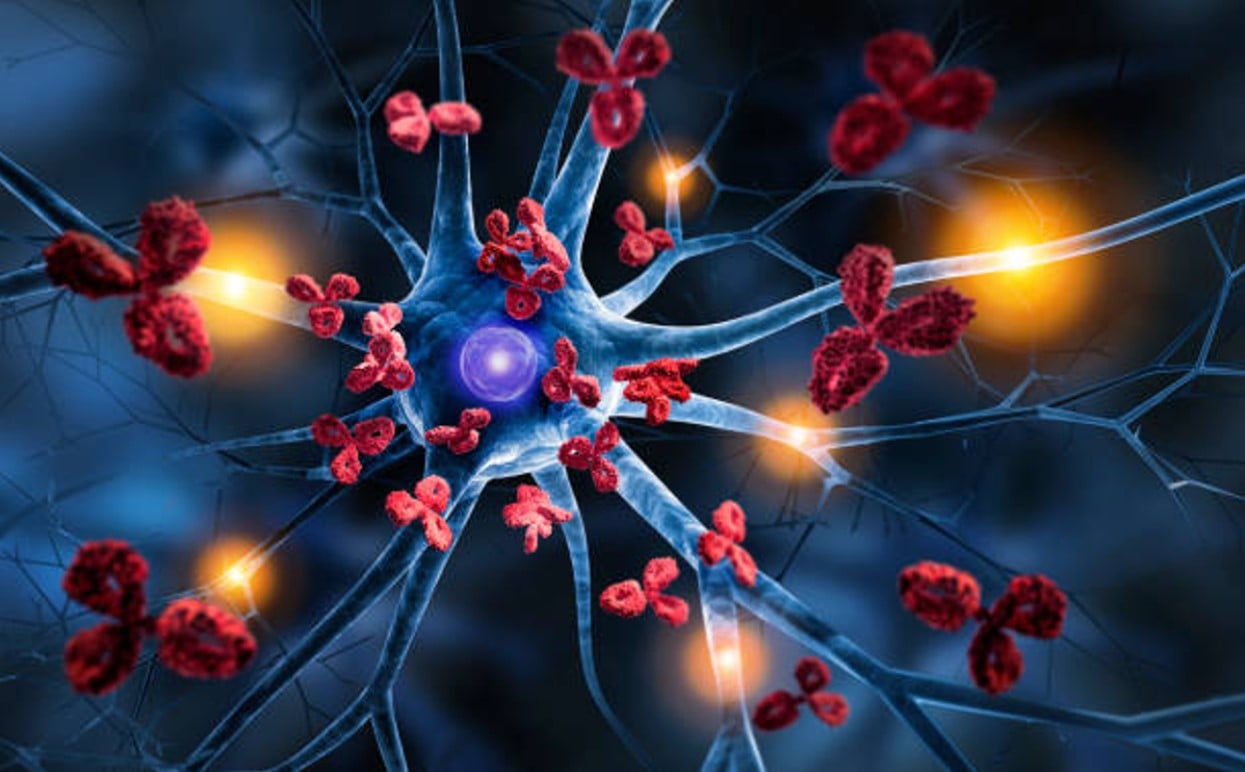More than 2.8 million people around the world suffer from Multiple sclerosis (MS), one-third of whom live in the United States.
For decades, the fact that residents of certain countries have been more likely to contract the disease has been a complete mystery, but now, researchers think they’ve finally figured it out.
What Is Multiple Sclerosis?

Before diving into the newest research, it’s first important to understand exactly what MS is and how it affects the body.
Multiple sclerosis is essentially a condition in which the immune system attacks the spinal cord and brain. Symptoms can vary, but typically, those experiencing MS will have trouble keeping their balance, vision impairment, or numbness of the limbs.
MS Is Far too Common

Sadly, this disease is incredibly common. According to the National Multiple Sclerosis Society, 2.8 million people are suffering around the world, and almost 1 million are living in the United States.
While there are treatments for the disease, there is currently no cure. Organizations such as the National Multiple Sclerosis Society are hard at work trying to find one. But in order to do so, they need to know more about the disease and, specifically, why some people are more susceptible than others.
Studying Genetics

For years, scientists have assumed that MS is caused by both genetic and environmental factors. Studies have confirmed that there are at least 233 genetic variations that are found in those with MS.
And maybe most interestingly, they noticed that people with European ancestry were more likely to contract the disease than those without.
The Study That Could Change Everything

Taking this information into consideration, researchers decided to analyze the DNA of today’s humans from Europe and Asia against that of their ancestors from up to 34,000 years ago.
The study, which was published in Nature on January 10, 2024, explains an entirely new theory as to why Americans and Europeans are more likely to contract MS. And their research may change the treatment and possible cure for this horrific disease.
The Paper Found a Correlation Between MS and Sheep

At the beginning of the paper, the authors wrote, “Although it is known that inherited risk for MS is located within or in close proximity to immune-related genes, it is unknown when, where and how this genetic risk originated.”
And by the end, they found that “genetic risk for MS rose among pastoralists from the Pontic steppe and was brought into Europe by the Yamnaya-related migration approximately 5,000 years ago.” Which, in simple terms, means they found a correlation between ancient shepherds and cattle herders and the Multiple sclerosis disease.
Understanding the Study’s Findings

Essentially, the study noted that about 5,000 years ago, when sheep and cattle herders moved from the East to Western Europe, they brought with them a specific genetic makeup, which included an impressively strong immune system.
It’s likely that the body developed a stronger immune system over time in order to protect itself from diseases the sheep and cattle often carried. And while there’s no doubt that an exceptionally strong immune system typically keeps us healthy, in this case, it might actually be causing diseases like MS.
Modern Day Diseases Are Much Different Than Those of 5,000 Years Ago

Thousands of years ago, humans didn’t have antibiotics, sterilization, or even clean water. Infection and disease were a real problem, and the body responded by creating a stronger immune system for itself to fight them off.
However, in today’s world, the body doesn’t come in contact with nearly as many diseases or infections, thanks to vaccines, clean water, soap, and antibacterials. So, that means humans today have a stronger immune system than they really need.
Overactive Immune System Could Be Leading to MS

According to Ramus Nielsen, a professor of genetics and evolution at UC Berkeley who worked on the study, “In the context of a modern environment, these genetic variants might cause our immune system to be over-active, resulting in autoimmune diseases.”
Of course, Multiple sclerosis is a perfect example of an all-too-common autoimmune disease these days. But there are so many more, such as Type 1 diabetes, Rheumatoid arthritis, Lupus, psoriasis, and celiac disease.
Understanding the Modern vs. Ancient Immune System

Co-author of the study, William Barrie from the University of Cambridge, explained, “Showing how the lifestyles of our ancestors impacted modern disease risk just highlights how much we are the recipients of ancient immune systems in a modern world.”
And noted that, “These results astounded us all. They provide a huge leap forward in our understanding of the evolution of MS and other autoimmune diseases.”
What Does This Information Mean for MS Patients?

It’s important to understand that while this information is crucial in understanding MS and other autoimmune diseases, for now, that’s all it is: more information.
As a person cannot change their genetic makeup passed down through generations of ancestors, there is no way to use this study to prevent MS. At least for now.
Researchers Hope This Information Can Assist in MS Treatment

Although this newfound data won’t help prevent MS (yet), researchers hope that it will be able to assist them in finding the best possible treatment for patients.
And some are even optimistic that this new knowledge of the disease may even lead scientists to finally be able to find a cure.








































